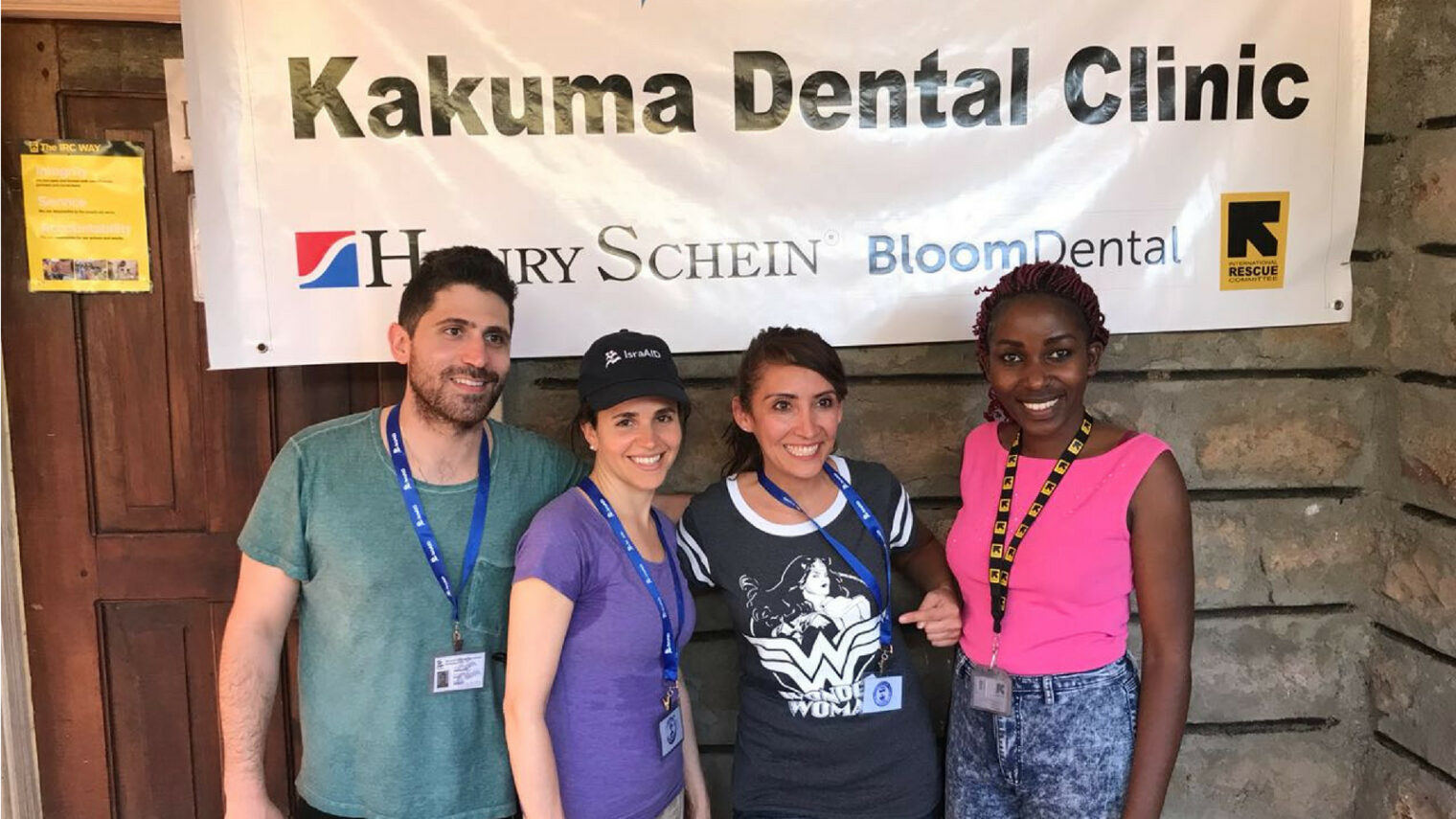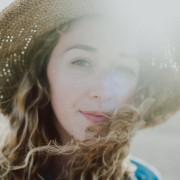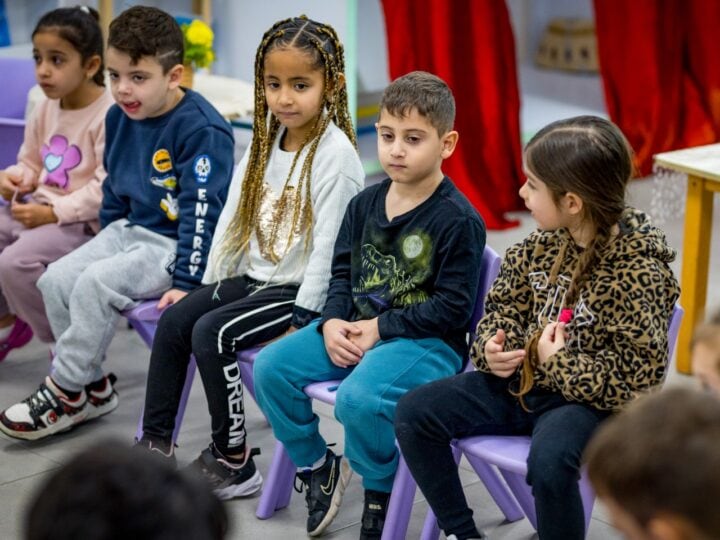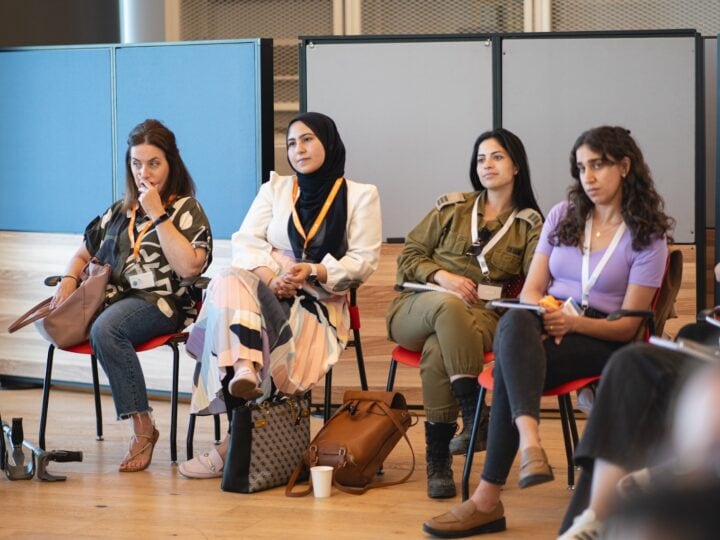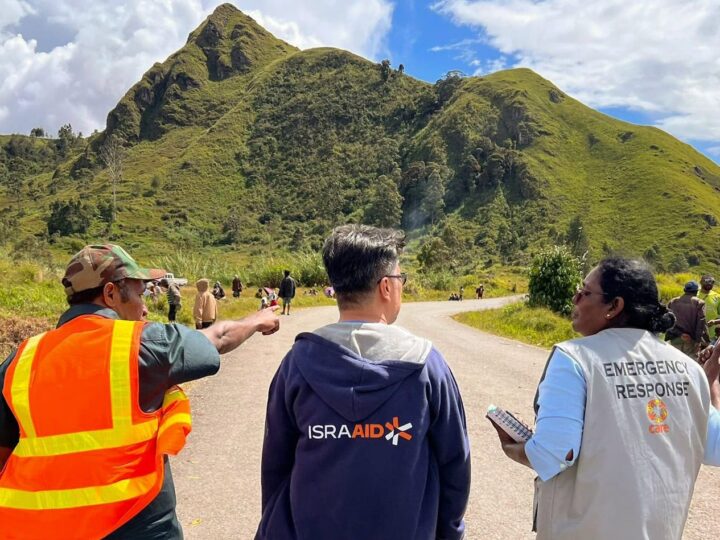Israeli humanitarian aid organization IsraAID set up a mobile dental clinic for one week in Kakuma Refugee Camp in Kenya, home to over 190,000 refugees from across the region, the majority escaping violence and instability in neighboring South Sudan.
Staffed by volunteer dentists from Bloom Dental Group, a San Francisco Bay Area dental practice, and IsraAID volunteers, the mobile clinic provided a range of treatments from routine check-ups to surgical procedures.
The four-person dental team, led by Israeli-American Dr. Lior Tamir, arrived on July 2 to Kakuma Refugee Camp to begin treating thousands of refugees.
Also arriving at the camp were more than $26,000 in oral healthcare supplies and products donated by global distributor Henry Schein. The clinic is supported by the Koret Foundation.
“For many of the refugees it will be the first time in their life that they are receiving dental treatment,” IsraAID co-CEO Yotam Polizer tells ISRAEL21c. “I think what’s unique about this program is that dental care is not something we usually think about when we think of humanitarian aid. We can really make thousands of people’s lives a lot better in a relatively simple operation.”
According to IsraAID, lack of access to adequate dental care and oral hygiene education is a major issue affecting the lives of refugees in Kakuma and around the world. As the number of displaced people around the world grows to more than 68 million, strain on dental and medical services for refugees is likely to grow.
Kukuma was established in remote Turkana County in 1992 and is one of the world’s oldest and largest refugee camps. There is one dental clinic for the entire refugee population, staffed by one dental technician. Many residents stay for several years, with little possibility of resettlement and no right to work.
“We are thrilled to operate the dental clinic for the first time in Kakuma. Though a dental clinic exists in Kakuma General Hospital, it is manned only by a technician and only very simple operations are performed. Otherwise, the clinic relies on irregular visits of external dentists,” said Or Mor, IsraAID’s country director in Kenya.
Future missions possible
The equipment donated by Henry Schein includes high-level dental operating equipment, allowing the team to perform relatively complicated operations, Polizer said.
At the end of the week-long mission, the equipment was left at the camp to be used by future volunteer dental teams in the coming months.
It is the first time IsraAID is partnering with Henry Schein, and if the pilot mission is a success, Polizer says the organizations could work together on future Israeli-American missions to multiply the impact and reach other countries.
“What we’re building here is a new innovative way to engage Israelis and Americans in professional humanitarian missions. It’s a new model of engagement, of two strong countries supporting together the world’s most vulnerable, and by doing so we’re trying to save lives and also build partnerships and bridges in a very divided community,” says Polizer.
In its first joint Israeli-American mission, IsraAID sent a medical delegation of US-based pediatricians to Kakuma in May. They organization also sent an Israeli-American team to Guatemala following the volcano eruption, and to Mexico to work with earthquake victims.




